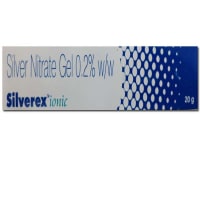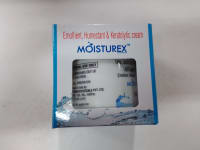USED FOR:
Atopic dermatitis
COMPOSITION:
Tacrolimus Topical (0.03% w/w)
Therapeutic Uses:
anti neoplastics

No interaction found

WEIGH RISKS VS BENEFITS
Tacrimus Ointment may be unsafe to use during pregnancy.Animal studies have shown adverse effects on the foetus, however, there are limited human studies. The benefits from use in pregnant women may be acceptable despite the risk. Please consult your doctor.

Tacrimus Ointment is probably safe to use during lactation. Limited human data suggests that the drug does not represent a significant risk to the baby.The baby's skin should not come into direct contact with the treated area of skin. Water-miscible cream/gel is preferred as ointments may expose the baby to harmful effects of Tacrimus Ointment via licking.

SAFE
Tacrimus Ointment does not usually affect your ability to drive.

Tacrimus Ointment is probably safe to use in patients with kidney disease. Limited data available suggests that dose adjustment of Tacrimus Ointment may not be needed in these patients. Please consult your doctor.

Tacrimus Ointment is probably safe to use in patients with liver disease. Limited data available suggests that dose adjustment of Tacrimus Ointment may not be needed in these patients. Please consult your doctor.
Uses of Tacrimus Ointment
Tacrimus Ointment is used in the treatment of atopic dermatitisIt is usually used only after topical corticosteroids or emollients have not worked for you.
How to use Tacrimus Ointment
This medicine is for external use only. Use it in the dose and duration as advised by your doctor. Check the label for directions before use. Clean and dry the affected area and gently massage the ointment. Wash your hands after applying, unless hands are the affected area.
How Tacrimus Ointment works
Tacrimus Ointment is an immunosuppressant that works by decreasing inflammation
in the skin which causes redness and itching of the skin.
Common Application site reactions (burning, irritation, itching and redness), Skin infection.
Expert advice for Tacrimus Ointment
Wash your hands before applying Tacrimus. Apply a thin layer to the areas of skin affected by atopic dermatitis (eczema). Make sure your skin affected by atopic dermatitis (eczema) is completely dry especially after bath or shower. Limit sun exposure during treatment even when the medicine is not applied on the skin. Do not cover the skin being treated with bandages or dressings. You can wear normal clothing. Avoid getting Tacrimus in the eyes or mouth. If the Tacrimus gets on any of these areas, it should be thoroughly wiped off and/or rinsed off with water. Stop Tacrimus when the signs and symptoms of atopic dermatitis (eczema) such as itching, rash, and redness go away or consult your doctor. Not recommended to be used for more than 6 weeks and if needed, treatment may be repeated with breaks in-between. Can’t be used if your immune system is weak (for example, if you have cancer or are taking steroids for a long time). Inform your doctor if you have any infection on your skin including chicken pox or herpes. Inform your doctor if you are pregnant or planning to conceive or breastfeeding. Many people see an improvement in their skin in as early as one week. Not recommended in children aged below 2 years.
Q. Is tacrolimus a steroid?
Tacrolimus is an immunosuppressant drug. It is not a steroid drug
Q. Is tacrolimus nephrotoxic or cytotoxic?
Tacrolimus may cause destruction of certain types of cells (cytotoxic) and may impair kidney function (nephrotoxic). Patients should follow the advice of the doctor regarding its use.


 Tacrimus Ointment
Tacrimus Ointment  Bookmark
Bookmark





















